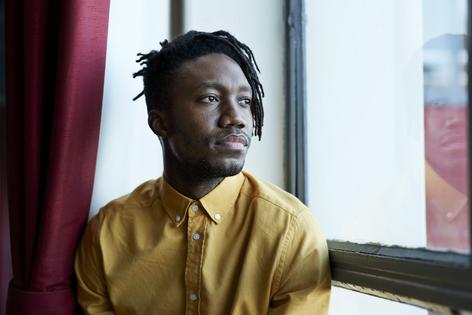Racial trauma has profound mental health consequence - a Black clinical psychologist explains and offers 5 ways to heal
Published in Political News
Since European expansion into the Americas, white people have demonized Black people and portrayed them as undesirable, violent and hypersexual. Originally, the intent of this demonization was to legitimize the conquest and sale of African people.
One consequence of this negative portrayal has been the documented psychological impact on Black people themselves. It includes self-hatred, internalized racism and an erosion of Black consciousness within the Black community.
During the 1960s, Martin Luther King Jr. recognized the consequences of racist stereotypes and tried to change the language and symbols of racism.
“Somebody told a lie one day,” King said. “They couched it in language. They made everything black ugly and evil. Look in your dictionaries and see the synonyms of the word black. It’s always something degrading and low and sinister. Look at the word white and it’s always something pure. …”
Though King longed for the day when the word “black” would be associated with beauty, Black people are still coping with feelings of alienation as a result of what is known as racialized trauma, the emotional impact of racism, racial discrimination and violence on mostly Black people.
I am a psychologist and professor of counseling. In our 2022 peer-reviewed article, mental health counselor Janeé M. Steele and I detail the mental injuries caused by encounters with racial bias, hostility, discrimination and harassment.
More important, our research has shown that healing from racialized trauma can help reduce the negative impacts of racism and provide the emotional resources necessary to challenge racial injustices.
The American Psychological Association defines trauma as “any disturbing experience that results in significant fear, helplessness, dissociation, confusion, or other disruptive feelings intense enough to have a long-lasting negative effect on a person’s attitudes, behavior, and other aspects of functioning.”
Common ways people are exposed to racialized trauma include everyday slights such as a store owner following a person of color around the store, racial slurs, denied opportunities, racial profiling and hate crimes.
These encounters, known as race-based events, may occur directly between individuals or groups of people, or they may happen indirectly – for example, as a result of watching a video of police brutality.
Whether they occur directly or indirectly, race-based events have a negative psychological effect on people of color and often leave them feeling wounded. Some of these wounds include increased rates of hypervigilance, depression, anxiety, post-traumatic stress disorder and low self-esteem.
During our research, we interviewed a 29-year-old Black woman who grew up in a lower-middle-class neighborhood near Detroit. She attend predominantly white private schools and went on to become the first in her family to graduate from college and later earn a master’s degree in counseling.
But when she started her first full-time job, she noticed that it was dominated by white males in a work environment where the voices of people of color were not regularly heard. For instance, the woman told us that during staff meetings she was often ignored, except on rare occasions when issues of race were discussed.
As a result, the woman explained that she felt that she was devalued and began to feel anxious, sad and hopeless. Her self-esteem also suffered.
Healing from racialized trauma is possible.
Yet current incidents of social injustice combined with centuries of violence, poverty, undereducation, mass incarceration, family dysfunction and health disparities have made it difficult for some Black people to maintain hope, a necessary element in undertaking the work to overcome this trauma.
Nevertheless, by learning new ways of thinking and coping, it is possible to find hope and overcome the wounds of racialized trauma.
Based on research and nearly 20 years of clinical experience, we have found tangible tools to address these wounds in five holistic ways.
As we write in “Black Lives are Beautiful,” a first step is identifying and understanding the psychological impacts of racialized trauma, as well as knowledge of strategies for wellness.
A second step in healing is the active promotion of higher self-esteem.
In our research, we learned that affirming one’s personal strengths and replacing negative beliefs can help individuals deal with racialized trauma.
The third is developing resilience. Tenacity during adversity is important. The ability to bounce back and persevere can come from connecting with individuals, family and community.
For some Black people, this work is especially powerful, as research indicates that spending time engaged in activities that focus on cultural strengths can increase feelings of personal control and lead to higher self-esteem.
The fourth way is to promote empowerment. Finding strength in one’s personal choices is fundamental to achieving a higher self-image. Those choices could include supporting Black-owned businesses, attending cultural events and developing a strategy to gain financial independence.
The last way of healing is found in promoting a sense of community. By doing so, an individual can increase a sense of belonging and counter the feelings of isolation triggered by racialized trauma.
This article is republished from The Conversation, an independent nonprofit news site dedicated to sharing ideas from academic experts. The Conversation is trustworthy news from experts, from an independent nonprofit. Try our free newsletters.
Read more:
If anxiety is in my brain, why is my heart pounding? A psychiatrist explains the neuroscience and physiology of fear
What’s in a word? How to confront 150 years of racial stereotypes: Don’t Call Me Resilient EP 1 transcript
Char Newton does not work for, consult, own shares in or receive funding from any company or organization that would benefit from this article, and has disclosed no relevant affiliations beyond their academic appointment.


































































Comments